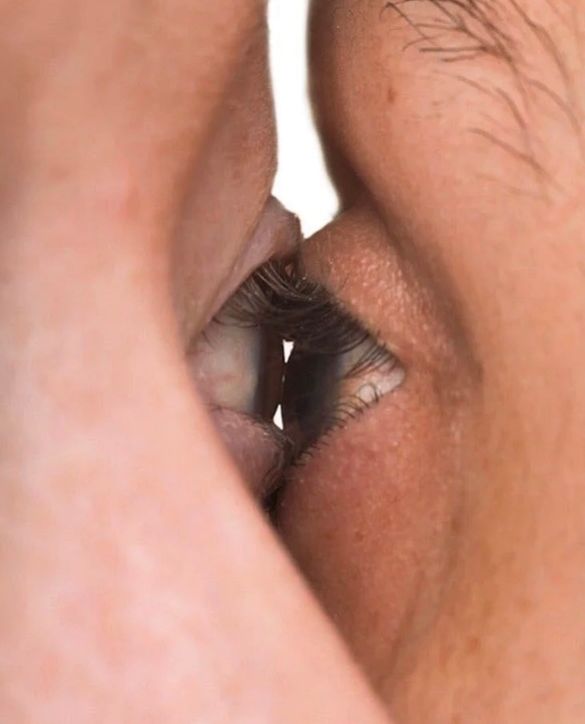
Picture credit: Instagram @yangli
I feel my insides pressing against my skin as I read yet another devastating newsflash. We’re fucked. Is any of this even salvageable?
On other days, it isn’t despair, just a weirdness. A glitch, a dissonance of sorts. Like someone has quietly rearranged my living room without telling me. Something is off. Not fully, just slightly. And I can’t return to the before, because I’ve forgotten how it was, how it felt. Who I was.
So I'll stay with it. This new thing. This after. This weirdness.
Maybe that is where it all begins. Maybe it's me.
Starts hiding behind my eyelids, washing over my perspective.
Blink havoc. Blink pleasure. Blink distraction.
Blink extreme. Blink lost. Blink empty. Blink alive.
Blink all of the above.
Remember after the dentist, when I kissed you with a numb lip, and it felt weirdly sexual.
Was that me, or was that just weird?
And the other day, when we saw a seagull devour a rat.
We read it as end-times symbolism.
Plagues of frogs, rivers of blood... the gull shall eat the rat.*
Weird enough for you? How weird are things going to get? Can I use this weirding thing?
To put us all back out of place.
Currently, our disturbingly muted emotional and behavioural responses to these and more weird moments of our climate crisis create the foundation for a new methodology to investigate how strangeness and extremity can help us move beyond simplified, anthropocentric narratives that obscure the complexity of interconnected crises and instigate ‘the Age of Global Weirding’.
The central question becomes: can we out-weird the weird?**
This research seeks to create methods of weird/ing, developed through a speculative design approach and informed by psychological research on weirdness, as a tool to spark awareness and action toward more sustainable futures. By crafting immersive and participatory provocations and experiences, the project seeks to foster new aesthetic and cultural norms that prioritise ecological care, sustainable activism and more-than-human perspectives across diverse disciplinary, organisational, and contextual landscapes.
(*from an Interview with Charlie Stern, **Ref Tim Leberecht, The Tangier Festival)
Bettina Schwalm is a Speculative Experience Designer, Writer, Consulting Strategist and Researcher with a long experience driving future-making as a collective practice in the service of society, culture and the environment. She is educating and coaching teams in innovation, future thinking and sustainability, always with a strong focus on behavioural studies. She is a Centre Director at the Stockholm School of Entrepreneurship and affiliated to Konstfack (University of Arts, Crafts, and Design) as well as a guest lecturer in various institutions around the world. Her interdisciplinary approach is at the intersection of science and design, developing hands-on tools and visions for organisations and the public realm.
In collaboration with Radical Norms a Toronto-based Speculative Design Studio, she works on Signs of Change (signsofchange.io) and other projects demonstrating how diverse social, political and financial ideas in the present can become our everyday reality in the future.
bettinaschwalm.com
Main supervisor: Martin Avila
Admitted to: Konstfack
Project period: 2025-2029